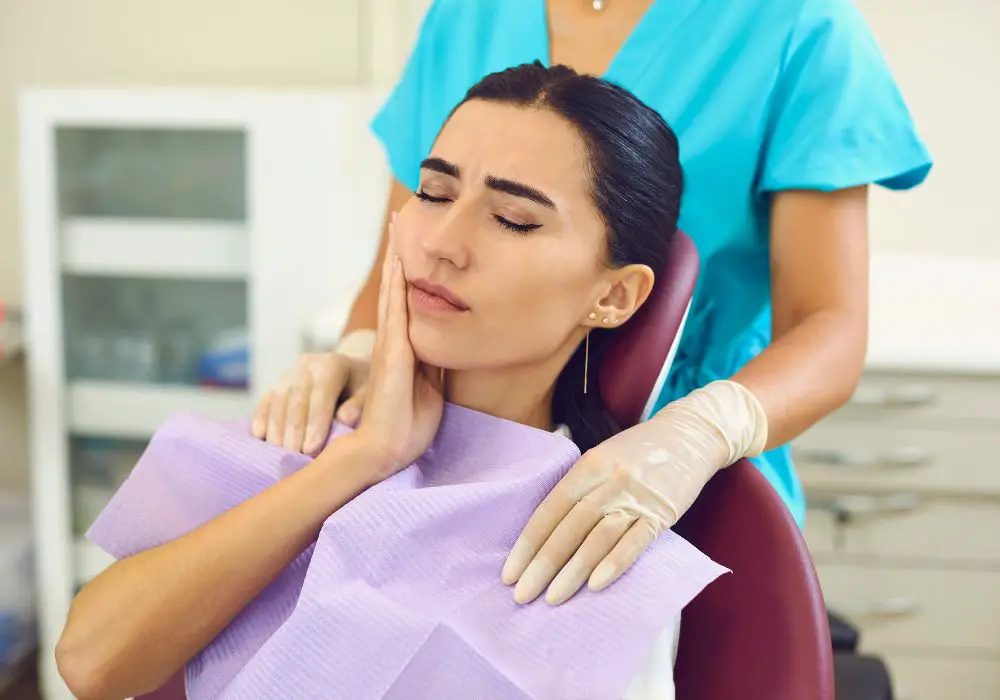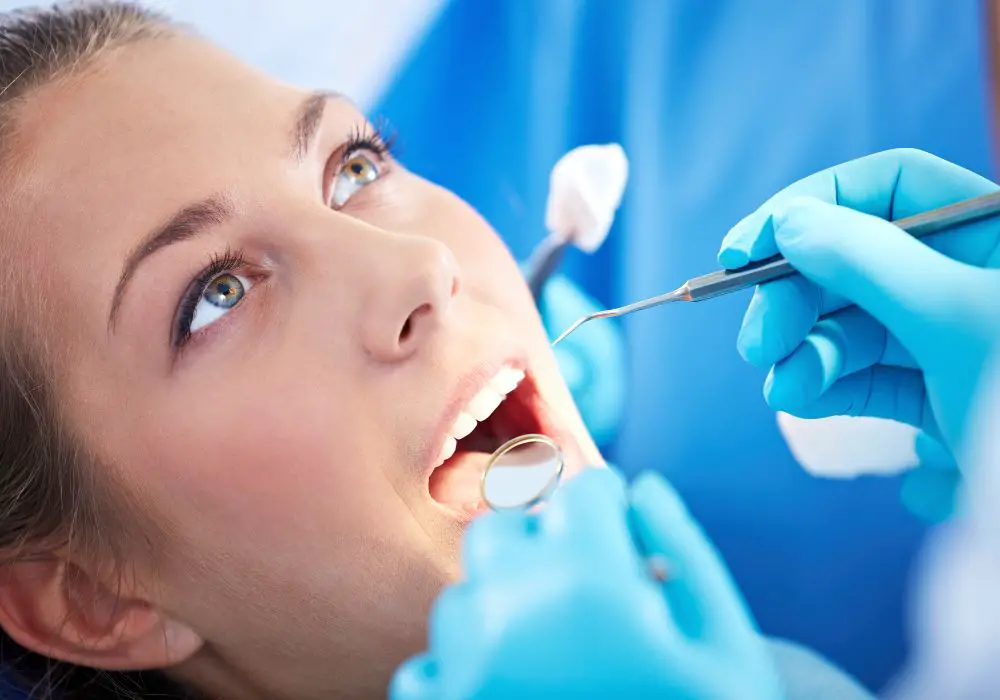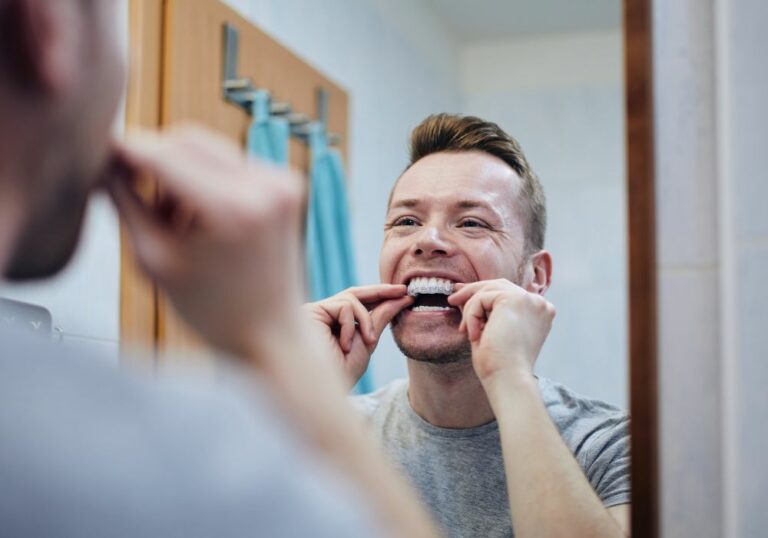Wisdom teeth can cause a lot of issues and having them removed is very common. While it’s a common procedure, the first few days following the removal can cause a lot of pain and discomfort, especially when sleeping.
If you’re about to have your teeth extracted or have just had the procedure done, then you’ll want to know how you can sleep soundly. All you need to do is read on as we give you tips and tricks on how to sleep, along with looking at ways you can aid recovery. Let’s get started!
How to Sleep After Wisdom Teeth Removal?

Trouble with sleeping is one of the biggest concerns after any type of surgery. You’ll be in a lot of discomfort but with the right management, you’ll be able to sleep soundly and quickly be able to have a pleasant night’s sleep. Here are our tips.
Don’t Stay Flat, Elevate Your Head
After getting your wisdom teeth extracted, you’ll need to keep your head elevated for at least 36 hours when you sleep. Usually a single pillow will be enough but if you can’t sleep this way, you can pile on a few more pillows for better elevation and support.
Also, the elevation will help you recover much faster than laying flat. Being lay flat increases the constriction of your blood vessels and blood volume. It will also cause the wound to throb.
If you stay lay down then the pain could grow further and increase the pressure, which leads to bleeding that can slow down healing. Additionally, laying at an angle can help lessen the swelling after surgery, so be sure to sleep this way.
Take Prescribed Pain Medications
After surgery, the anesthesia will eventually wear off, and you’ll likely feel some pain. Technically, any type of discomfort will prevent you from sleeping soundly. That’s where the pain medications your dentist gave you comes in. Take them to get yourself a good night’s rest.
Even if it’s painful, don’t take more than what was recommended. If the pain persists, contact your dentist immediately. Also, you can use a cold pack and hold it against your jaw while resting. This will help you sleep while easing the pain after the extraction.
Before Sleeping, Remove the Gauze
After surgery, gauze is sometimes left in your mouth, but when you’re about to sleep, you need to get rid of it because you could choke on it. Be sure that at least half an hour has already passed since your surgery before removing the gauze from your mouth.
Your dentist will give you directions on when exactly you can remove the gauze and it’s important to follow it. If you don’t follow this advice then you risk disturbing the wound and prolonging your recovery with potential issues, such as dry socket.
Follow Other Postoperative Instructions
To sleep peacefully and comfortably after your wisdom tooth extraction, never forget the aftercare instructions given to you by the surgeon. Resting adequately and taking good care of yourself will contribute to a smoother and faster healing experience.
Although challenging, always stay fed and properly hydrated after your wisdom teeth removal. Remember, eating normally will be a challenge because of the wounds, however, there are plenty of soft food options that you can enjoy.
Also, drink lots of water but avoid using a straw for at least one week. The suction caused by the sucking motion can pull the blood clout of its socket. If this happens, it can prolong the bleeding and can interfere with your sleep and healing process.
It’s also recommended not to brush your teeth during the first 24 hours after your surgery. In the meantime it’s a great idea to gently rinse with salt water to keep the wound clean at all times to prevent infections.
Food and Drinks That Aid in Recovery and Sleep

You’ll need to be very careful about what you eat and drink in the first 72 hours (3 days) after your surgery. However, it’s important to eat and drink as much as you usually would to speed up your healing and help you sleep.
Food
Here’s a list of the best types of food you can eat:
- Eggs – Scrambled eggs are soft and easy to eat. These are rich in protein and Omega-3 to boost healing.
- Yogurt – It has a cool and creamy texture that makes this healthy treat enjoyable. Plus, it is rich in vitamins and minerals that will also help aid your recovery.
- Applesauce – Here we have another treat with a smooth texture, making it a perfect post-procedure snack. It has vitamin C that helps fight infection and boosts your healing.
- Lukewarm Soup – Blended soups like carrot, pumpkin, or tomato soup are rich in nutrients. It’s important to not eat hot soup as this can disrupt your healing.
Of course, this isn’t an exclusive list of the food you can eat. Make sure to eat foods like this that are soft and easy to digest. While that’s true, try to avoid any soft foods which are too high in acid or sugar.
Drink
Here’s a list of drinks that can be great for your recovery:
- Water – Water replenishes essential nutrients, which is vital after a surgical operation. Plus, it gives your body the strength to fight infection.
- Almond Milk – Almonds can alleviate wounds, but since you can’t eat nuts after having your wisdom teeth removed, go for almond milk. It’s soothing, refreshing, and also provides melatonin, a hormone that helps improve sleep.
- Ginger Ale – Its mild flavor and bubbles can relieve nausea and upset stomach.
- Sports Drinks – These are rich in vitamins that your body needs to replenish to regain strength and fight infection. However, try to find one that is low in sugar.
- Chamomile Tea – This can promote better sleep and relieve inflammation. Of course, be sure to drink it lukewarm rather than hot.
As with our food section, this is not an exclusive list. Make sure to avoid drinks that are packed full of sugar and don’t use a straw.
What You Shouldn’t Do After Wisdom Teeth Extraction

After wisdom teeth removal, you need to take care of the wound and prevent the blood clots from dislodging. Otherwise, you can get a dry socket, which is when the blood clot is removed and the nerves underneath are exposed.
Here are the things you should avoid doing to reduce the risk of complications:
- Sleeping on Your Back without Elevation – After having your wisdom teeth removed, RICE is the recommended protocol to follow to promote faster recovery. It stands for Rest, Ice, Compress, and Elevation. Never sleep flat on your back since this will cause inflammation and increase the pain.
- Brushing the Wounds – Do not brush the area where your wisdom tooth was removed. Give it at least 24 hours to prevent the blood clot from dislodging, but still be extra careful not to brush over the recovering gum.
- Sleeping at Later Hours or Lacking Sleep – Rest is always important, and getting plenty of it is essential after having your wisdom teeth extracted. Many people try to put off sleep as they are worried about it, but this isn’t the right approach.
- Smoking or Drinking Alcohol – Tobacco and alcohol can disrupt your body’s healing abilities. Avoiding these is ideal during your recovery period for at least 72 hours, but ideally a week.
Things to Do When You Wake Up
Healing from a wisdom tooth removal entirely can take weeks, but your recovery can speed up by properly caring for your wounds. Since we’ve already discussed how you should sleep, here are some morning habits you can follow:
- Check for signs of infection or any complications
- Apply ice to reduce swelling
- Take medications prescribed by your doctor
- Once 24 hours have passed after the procedure, rinse your mouth gently with salt and water to disinfect and kill the bacteria
- For breakfast, eat soft food like eggs to prevent wound irritation
When You Should Call Your Dentist
If your medication does not ease the pain, or if you’re experiencing excessive bleeding or swelling, call your dentist immediately. These are signs of an infection or a dry socket, and the problem needs to be addressed immediately.
You should be able to notice or feel if you have a dry socket as the nerves that were underneath your wisdom teeth will be exposed. This is not something you’ll be able to treat at home and you’ll need to see the dentist who will clean and re-treat the wound.
Conclusion
Knowing how to sleep after having your wisdom teeth removed is crucial for recovery. Taking prescribed pain medications, keeping your head elevated, and making a comfortable sleeping environment can help manage the pain and swelling while sleeping.
If you notice something wrong or notice signs of infection, contact your dentist to have the surgery site checked. Also, your dentist may have extra instructions, so listen and pay attention to their reminders and advice.







